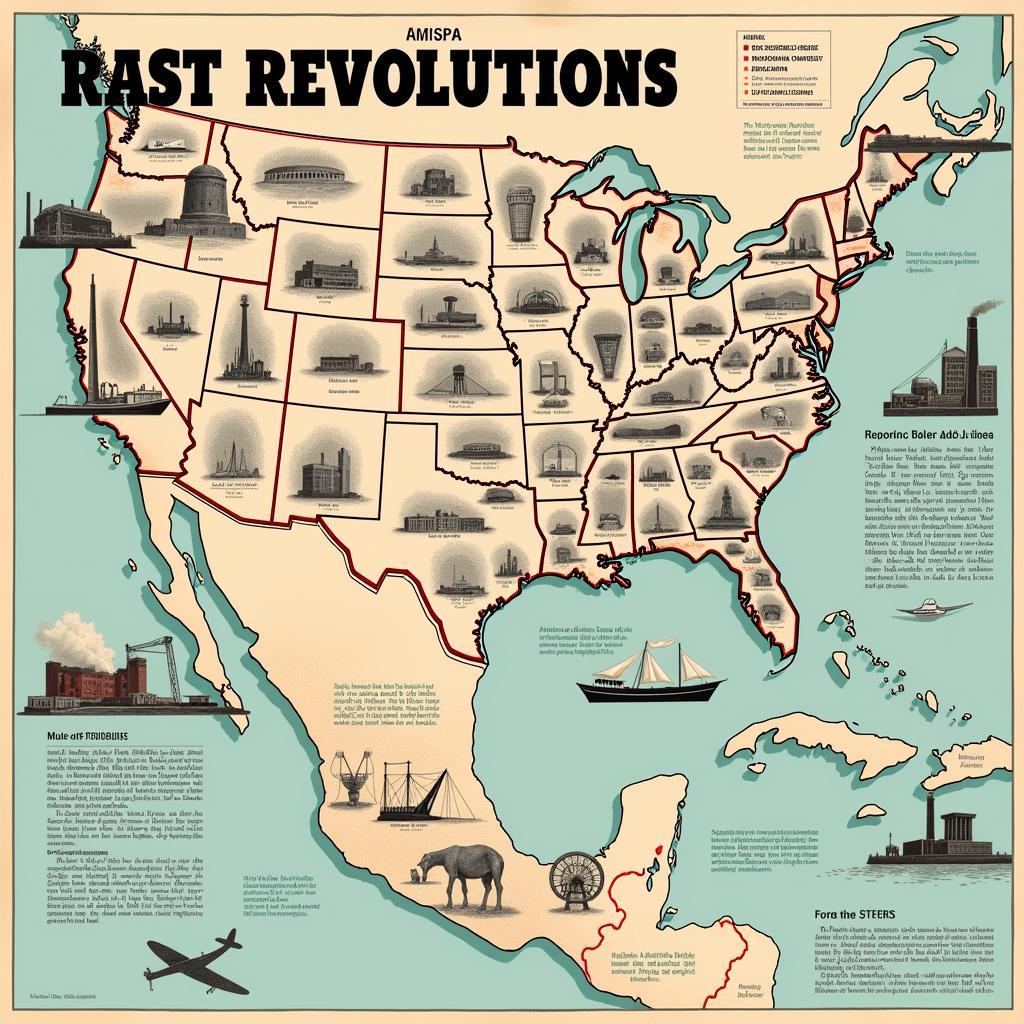The impact of revolution on society is a complex and multifaceted topic, a cornerstone of AP US History. Understanding how revolutions reshape social, political, and economic landscapes is crucial for grasping the trajectory of American history. This article delves into the profound effects revolutions have had on American society, examining various aspects from societal upheaval to the forging of new national identities.
Social and Political Upheavals: A Consequence of Revolution
Revolutions, by their very nature, disrupt the existing social and political order. The American Revolution, for instance, dramatically altered the power dynamics, challenging the established authority of the British monarchy. This upheaval led to the creation of a new republic founded on principles of self-governance and individual liberty. Similar transformations occurred after the Civil War and the Reconstruction era, although the fight for true equality continued for generations. These periods of intense change often result in the emergence of new social hierarchies and political structures. The fight for independence wasn’t just about political freedom; it was about reshaping society. Soon after the revolution, movements pushing for greater societal equality, like the burgeoning abolitionist movement, began to gain traction. The 1791 society could be a good example for reflecting on such changes.
The American Revolution’s impact went beyond just replacing a king with a president. It ignited debates about the very fabric of society, prompting discussions about equality, representation, and individual rights. These debates, while initially focused on white, landowning men, laid the groundwork for future movements seeking to expand these rights to marginalized groups.
 Social Impact of the American Revolution
Social Impact of the American Revolution
Economic Transformations: Reshaping the Nation’s Financial Landscape
Revolutions often have profound consequences for a nation’s economy. The American Revolution disrupted established trade routes and led to economic hardship in the short term. However, it also paved the way for the development of a more independent and diversified economy. The Civil War, too, had a significant impact, leading to the abolition of slavery and the subsequent restructuring of the Southern economy. This shift impacted labor systems, land ownership, and the distribution of wealth throughout the nation.
The rise of industrialization following the Civil War further transformed American society. This period, known as the Gilded Age, saw both incredible economic growth and widening social inequality. The Impact Of Revolution On Society Apush continues to be felt even today, as we grapple with the legacy of these transformative periods.
 Economic Impact of Revolutions in America
Economic Impact of Revolutions in America
How Revolutions Influence National Identity: Forging a New Sense of Self
Revolutions often lead to the creation of new national identities. The American Revolution forged a sense of American identity distinct from British rule. This new identity was based on principles of democracy, liberty, and self-government. Similarly, the Civil War and Reconstruction led to a redefinition of American identity, with the nation grappling with questions of race, equality, and the meaning of citizenship.
The american colonization society apush definition is a prime example of how social and political dynamics shifted during these transformative periods.
“Revolutions are not just about overthrowing governments; they are about transforming the very soul of a nation,” notes Dr. Amelia Hernandez, Professor of American History at the University of California, Berkeley. “They force societies to confront their core values and to reimagine their future.”
 National Identity Post-Revolution
National Identity Post-Revolution
Conclusion: The Enduring Impact of Revolution on Society APUSH
The impact of revolution on society apush is a vital theme throughout American history. From the American Revolution to the Civil War and beyond, these periods of upheaval have shaped the social, political, and economic landscape of the nation. Understanding these transformations is essential for anyone studying AP US History. These revolutions have not only redefined the nation but also continue to shape the ongoing dialogue surrounding equality, justice, and the pursuit of a more perfect union.
FAQ
- How did the American Revolution change social hierarchies?
- What were the long-term economic consequences of the Civil War?
- How did revolutions contribute to the formation of American national identity?
- What were the key social and political changes brought about by the Reconstruction era?
- How did the Industrial Revolution impact American society after the Civil War?
- What were some of the key debates sparked by the American Revolution?
- How did revolutions impact the lives of marginalized groups in American society?
Common Scenarios and Questions
Students often ask about the immediate and long-term effects of major revolutions in the US. They are curious about how these events shaped the nation’s identity and continue to influence present-day issues.
Further Exploration
For more information, explore related articles on our website or consult with your AP US History teacher.
Need Help? Contact Us!
For 24/7 support, call us at 02043854663, email us at [email protected], or visit us at Zone 34, Bac Giang, 260000, Vietnam.